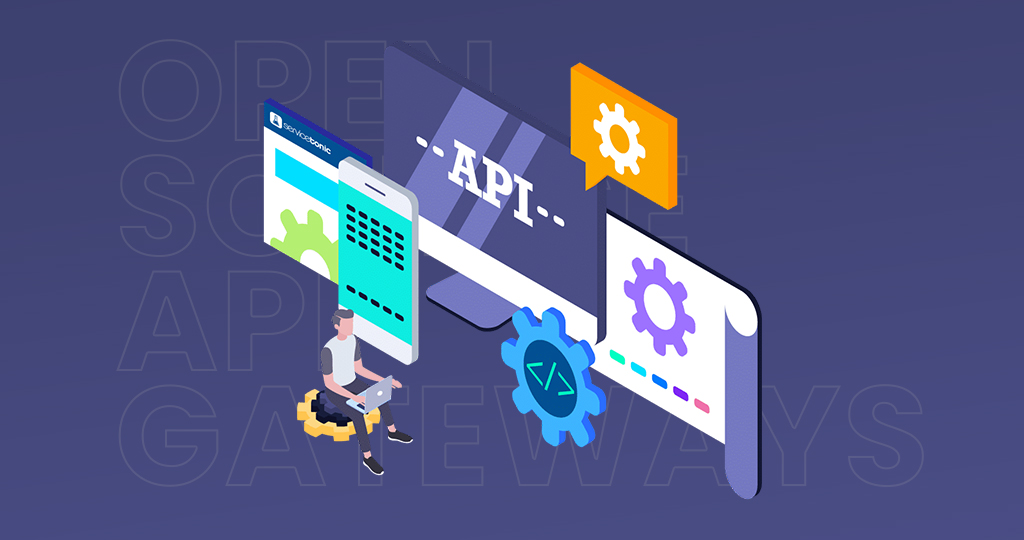Do you need an open-source API management solution for your business? A successful microservices architecture can be greatly improved by choosing the right API gateway. API-first businesses depend on a wide range of services to create APIs and provide value to their clients. Various technologies may be used to develop APIs. By using procedures and tools (internal or external), you want your APIs to be consistent with your users. Business API endpoints can be managed, authenticated, and used easier with open-source API gateways. These gateways don't care about your architecture, data type, or other API choices.
There could be different API types in a developed API program, for instance. Gateways can also manage microservices, mobile backends, partnerships, and even external services. Because of this significant presence, everyone is looking for the greatest API development guides and utilizing the insights to deliver an ultra-advanced and smooth experience to their target audience. If you thought building an API was challenging, try managing one.
What exactly is an API Gateway?
Open-source API serves as a gateway for external customers. It is a component that serves as the application's entrance point. In other terms, an API gateway is an API administration server that has endpoint information. It can also do authentication, rate limiting, load balancing, and other functions. To obtain a better image of an API gateway, we must first understand why it is necessary to have one.
Why are API integration platforms used?
There are many different types of applications that use APIs, both large and small. Whether you're creating a new API marketplace or launching a public API, APIs are changing how businesses are done. In the same way that HTTP servers serve websites in production, API gateways serve APIs in production. APIs can be delivered to clients and partners through API gateways. The proxy server sits in front of your API and handles functions such as authentication, rate limiting, redirecting endpoints to the appropriate microservices, and load balancing. Use an API management gateway to:
- Create APIs by combining microservices.
- Secure Microservices both internally and externally.
- Provide modern APIs for legacy services.
- Obtain business insights through Microservices and APIs.
Top 10 Open source API gateways
1. Kong Gateway
Kong is one of the top priority open-source API gateways which is built on NGINX. Kong is committed to supporting a microservice API design at scale and provides a robust set of plugins to that end. It's designed to be modular and adaptable, so you just install the services that your team needs. Kong's Plugin Development Kit (PDK) also enables you to create plugins that extend Kong's functionality by utilizing Go or Lua (a C-based scripting language). As a result, Kong, its partners, and its big community has created a great number of plugins. If the core Kong API gateway does not already fulfill all of your organization's needs, you can use the existing plugin library or create a whole new plugin expressly for your use case. Kong may be the appropriate solution for you if you're seeking a community-driven, open-source API gateway.
2. Tyk
The MPL, under which Tyk is licensed, is not as liberal as Kong's Apache 2.0 license. The same gateway is used by Tyk's enterprise and community users simultaneously. There are no additional charges for certain enterprise features. Instead of requiring additional plugins and Lua scripts, Tyk is a plug-and-play API Gateway. There are no plugins required for OIDC, OAuth2, Bearer Token, Basic Auth, Mutual TLS, and HMAC authentication methods. Additionally, it supports XML to JSON, JSON to JSON, and JSON Schema validation. GoLang, a fast throughput and parallelism-optimized system language, is used to implement Tyk.
In addition to offering a cloud-hosted version, Tyk.io also offers professional assistance licenses. NGINX's GoLang may be more current and easier to program than Kong/Lua. Tyk offers interpreters for running plugins in other languages besides Golang, such as Javascript and Lua. The cloud version will require direct internet access, unlike the on-premises version, which will run within the same VNET as your internal services. Tyk includes features like Key Management, Quotas, Rate Limit, API version, and access control, but no integrated invoicing.
3. KrakenD
Kraken is the most effective open-source API management platform. All of the API management solutions and tools mentioned above are open-source and ready to be a valuable addition to the tech stack.
4. Gravitee.io
A Java-based API gateway management software, Gravitee.io helps enterprises manage APIs, publish them, analyze them, and document them. There are three major modules included, and they are as follows:
- Open Source Identity & Access Management is a customizable, lightweight, and user-friendly solution. It includes a centralized authentication and authorization server to safeguard your APIs and apps.
- The Alert Engine (AE) module helps customers to manage their API platforms easily and effectively by configuring alerts and getting notifications. It also makes it easier to detect suspicious behavior and send multi-channel notifications.
5. Goku API Gateway
Goku is an open-source API platform that is a microservice gateway with a cloud-native architecture. It supports high-performance HTTP forwarding and dynamic routing, as well as service orchestration, multi-tenancy management, API access control, and other capabilities. It allows for cluster deployment and dynamic service registration, as well as backend load balancing, API health checks, API detach and reconnect capability, and hot updates (continuously updates configurations without restart nodes).
6. WSO2 API Manager
WSO2 API Microgateway is mostly written in Java and streamlines the process of developing, implementing, and securing APIs in distributed microservice architectures. It enables the conversion of legacy API formats (both requests and answers) to current ones, allowing them to be exposed to modern consumer apps. Because WSO2 API Microgateway employs OpenAPI Specification (OAS), developers can collaborate to create APIs and then independently test them. Furthermore, it is very scalable because it may function in isolation with no reliance on other components.
7. Fusion
Fusion is an open-source PHP-based API administration application used to design and manage REST APIs. The API management platform and software allow you to establish API endpoints that can retrieve and alter data from databases. It provides all of the tools needed to quickly create an API from diverse data sources and provide unique responses. It also supports the building of Open APIs and SDKs.
8. Gloo Edge
Gloo Edge supports traditional apps, microservices, and serverless architectures. Schedulers, persistence tools, and security tools can be used according to your environment. API management solution gateway manages the ingress and egress of inbound connections and responses. GraphQL, gRPC, OpenTracing, NATS, and other open-source projects are also incorporated into Gloo Edge to deliver high-quality capabilities. It supports hybrid apps built with multiple technological devices, architectures, and interfaces that run on numerous clouds, as well as powerful functional-level routing (allowing the merging of traditional apps, microservices, and serverless). Security, automated discovery, service-mesh integration, and transformations are also supported.
9. SnapLogic
The SnapLogic Integration Platform as a Service (PaaS) is an impressive tool for growing, sustaining and acquiring customers. In addition to being fast, multipoint, and flexible, it can address both batch-oriented and real-time app data integration needs. Despite its scalable architecture, it also provides the option of embracing versatility. It also includes creative data flow solutions that help businesses to integrate reputable SaaS apps such as SugarCRM and Salesforce into their existing processes.
10. Repose
Repose is an open-source RESTful middleware platform that is playing an important part in the evolving API market. The platform offers businesses API processing services such as authentication, API validation, rate limitation, and HTTP Request logging. This API management platform aims to provide downstream services for trusting well-formed and validated incoming requests. It is also highly extensible and scalable, which means developers may simply use it to meet changing demands and requirements.
Conclusion
Once your API is prepared, don't forget to secure and monitor it. You can try open-source if your budget is limited. Installing a few of them on your cloud VM is the easiest way to determine which ones work for you. When comparing open-source API gateways, it's critical to consider your long-term requirements to avoid having to switch to a different solution later in the product development cycle. The functionality of each of the API gateways we've described can be simply expanded.
To continue offering your users the greatest experience possible, you will need to be able to adapt your API gateway to your changing demands. Way2Smile Solutions is a reputable mobile app development company in Dubai that will provide you with the best mobile app development services and will walk you through the full mobile app construction process. So, what are you holding out for? Make contact with the top mobile app development company in Dubai right away, and get your APIs in order.







